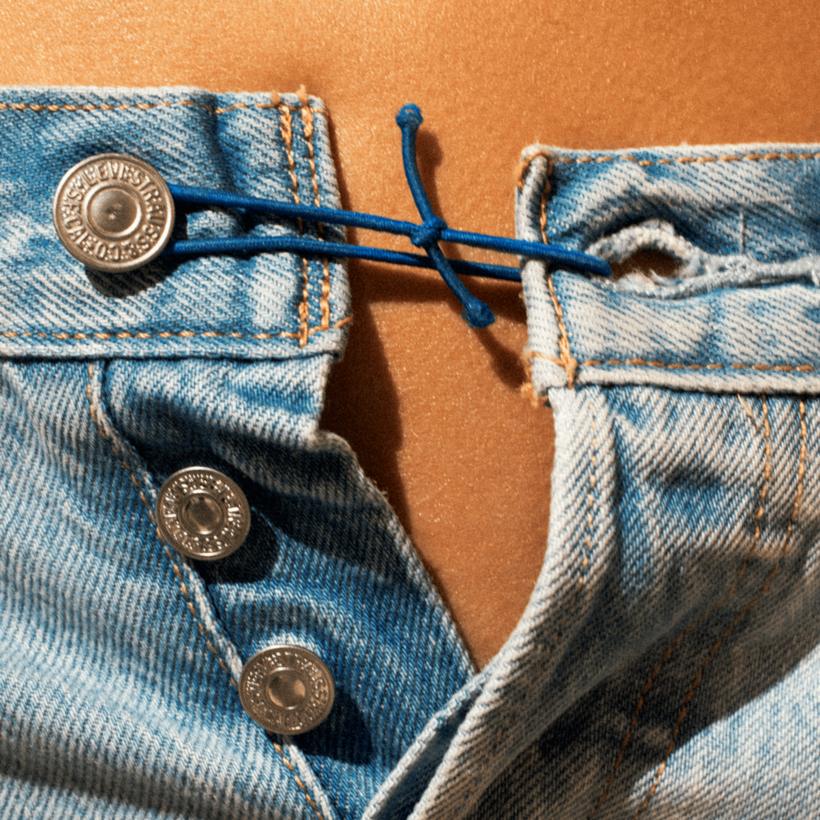I linger at mirrors. I allow myself to be photographed from the waist down. I wear high-cut bikini bottoms that were designed by Gigi Hadid and marketed to Gen Z. I’ve changed. Actually, Mounjaro has changed me. I don’t want to jinx things by calling it a miracle drug, but that’s what it feels like: the antidepressant I never knew I needed.
It’s saddening and maddening to tally up how much time on this planet—3 percent? 5? 10?—I spent cogitating on how to lose 10 pounds. Even tiny decisions came with a calculus: Brie or mozzarella? Escalator or stairs? Cappuccino or Americano? No other part of my life has ever benefited from such sustained attention. Imagine dedicating all that brainpower to something lucrative or meaningful—gaming the stock market, calling my cousins, campaigning for someone else’s rights. I could have changed the world instead of my thighs.
Instead, I fretted over my weight. Fear of death, disease, more Trump—they come and go, yo-yoing in and out of consciousness depending on the day and the news cycle. But those concerns are never fully excised, disposed of as decisively as a weed in a rose garden.
But thanks to three weeks (that’s three injections) of Mounjaro, my low-level anxiety and those 10 pounds? Gone without a thought. Life chugs along—editing copy, supervising homework, prepping meals, walking dogs, hoisting dumbbells. Except I no longer have to contend with a voice that lived far too deep in my subconscious to locate, much less excavate—a voice that never stopped asking, How can I lose weight today?
I wish I could be more evolved, more accepting of myself at every size, more willing to just let go. But I’ve been trying, and failing, to re-frame my body image for, what, 30 years now? It’s an ugly and embarrassing truth, and it pains me to say it, but: I want to be thinner.
Brie or mozzarella? Escalator or stairs? Cappuccino or Americano? No other part of my life has ever benefited from such sustained attention.
I suppose I could blame the 90s, Carnation Instant Breakfast, and my size-4 grandmother, who referred to her midsection as “my swollen embarrassment,” but we’re all products of our times. I’d like to believe that things are better now. Thanks to the good work of a lot of smart, thoughtful activists, body positivity—or, really, body acceptance—has a better chance of imprinting itself on the next generation. But my nine-year-old just told me that her classmate is on a diet: two carrots for breakfast.
Nearly 2 percent of Americans injected themselves with semaglutides and GLP-1s such as Ozempic, Wegovy, and Mounjaro last year. The drugs have been used in treating diabetes patients for decades, suppressing hunger-inducing hormones and delaying gastric emptying to mimic the sensation of being full. But it’s only during the past two years that they have been prescribed (and approved by the F.D.A.) for weight loss.
When Ozempic fever first hit, I regarded the drug like a first-generation coronavirus vaccine—earmarked for high-risk patients who needed it most. But today, with compound pharmacies churning out vats of the stuff and prescriptions from weight-loss clinics just a few clicks away, I thought, Screw it. The side effects—nausea, GI distress, a small risk of pancreatitis—didn’t scare me. The biggest deterrent was the cost: $300 a month. (Which doesn’t seem so crazy given the price of a raw-food smoothie at Erewhon these days.)
Did I “need” it, whatever that means? Certainly not. I’ve lost those 10 pounds without medication before. Six years ago, I followed a program of daily interval training, a 14-hour window of intermittent fasting, 10,000 steps a day, and zero sugar. I’d never felt worse—hangry, exhausted, aggrieved, desperate—in my life. I spent around $300 a month on Barry’s Bootcamp (and loathed every second of it), and my nervous system was taxed in ways I don’t even like to ponder.
Compared to that, life on Mounjaro feels like two weeks at Jumby Bay. (Except this time, I might be swimming in the nude.) My diet resembles one of those food logs I used to devour in Us Weekly: poached eggs on toast for breakfast, a thrown-together salad along with chicken or steak for lunch and dinner. I may even leave some of it on my plate. I’m less impulsive, so I order the sea bream. I still have enough of an appetite to enjoy the linguine alle vongole, but I won’t polish off every last strand. Nothing feels off limits, unlike those months (years?) when I snacked on only string cheese or avoided bread entirely. And I can bake cookies for the kids without wondering how many I’m going to eat before they get home from school.
I didn’t drink much before all this, but Mounjaro makes a compelling case for cutting down on alcohol too. When I dined at Noma, in Copenhagen, on my third week on the drug, we ordered the wine pairings. Those, plus a tart with dough from ground fish eyes, had me feeling like a seasick passenger in Triangle of Sadness for the next 12 hours.
But perhaps the most unsettling thing about my Mounjaro experience—and its worst side effect—is the judgment. One friend lost 40 pounds on Ozempic and never told her husband how she did it, because he had dismissed the drug as “the easy way out.” She says, “He actually asked me if I was having an affair. I wanted to tell him the truth, but I was just too ashamed.”
I refuse to feel shame about using Mounjaro, and I don’t believe it should be cloaked in secrecy. So I told my friends all about it. And most did not respond encouragingly.
“I’m so disappointed in you—you’re going to kill yourself,” said one, tempting me to weigh in on her affection for Marlboro Lights. Another inquired about my “adventures in aesthetic medicine.” When I texted “Guys—I love Mounjaro” to a group chat with my oldest friends, they didn’t even reply. Surprising, since we’ve been known to rack up hundreds of messages about the antics of obscure book influencers.
O.K., fine. I plunged a teeny-tiny needle full of appetite suppressant into my thigh because of vanity. But it was also the urge, at last, to be done with a nagging so persistent that it had become its own chronic condition. Perhaps, with enough talk therapy, psychedelics, or meditation, I would have found the path to enlightenment, but who knows? I was tired of stepping on the scale every morning—and going to bed every night annoyed with myself for having that second piece of cake. Thirty years has been long enough on that particular hamster wheel.
Now I keep a stash of Mounjaro in the fridge. When my jeans start feeling tight, I refuse to get all worked up about it. Instead, I have a plan. And just knowing it’s an option may be enough.
Ashley Baker is the Executive Editor at Air Mail Look




